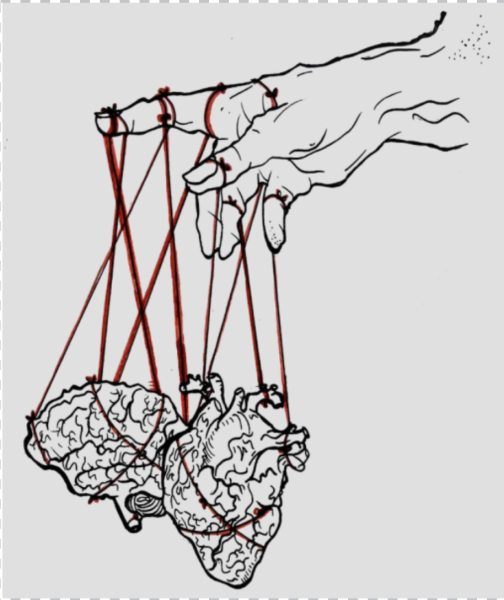The Art of Lying
Everyone lies. Sure, there are some people who may go their whole lives telling only one or two while others may lie through their teeth. But when it comes down to it, everyone lies. And while lying may be broadly considered insincere and immoral, we must ask ourselves, what exactly is a lie? And not only what it is, but are people really able to pick it up? Is it instinctive? Is there such a thing as an imperceptible lie? From surprise parties to white lies to pure, malicious manipulation, perhaps the better question is not the science behind a lie, but rather the art.
However, the science is always the easiest to begin with. Especially when the very fundamental moral arguments of the given topic have provoked discussion amongst philosophers for centuries. Because realistically, lying is a very sophisticated function of the brain. An art only some can master. Yet even children begin lying instinctively at a young age. In fact, children generally start telling their first purposeful lies at ages four to five. Nevertheless, don’t let this take away from the complexity behind lying. The ability to lie relies on the use of diverse cognitive resources. The first being the exercise of deontic reasoning or becoming aware of the truth, suppressing the truth, finding a plausible scenario, all while balancing the ethical implications. But this knowledge raises the question, how often the average, fully-grown human really lies. According to a study co-authored by Professor Tony Docan-Morgan of the University of Wisconsin, most communication is honest, however, even the 75% of respondents who recorded they “do not lie much,” still lie about zero to two times per day. Not only sparse, most of these lies were supposedly inconsequential, minor white lies about gifts you don’t like or excuses for being late to work. Similarly, a small group of about 6% had modest levels of lying on average, regardless, there were days on which they lied more. Meanwhile, the top 1% averaged 17 lies per day.
Now– the facts have been established. Though there isn’t a lot that can be done with this information, it may be reassuring to know that the vast majority of communication is truthful. However, over 80% of people still lie on, or almost on, a daily basis. If people are lying nearly every day, what exactly are they lying about? Some argue that lying is instinctive. Yes, it may require considerable mental proficiency compared to simply telling the truth. Nonetheless, one must consider that telling the truth is often a choice. Morally, the choice should be easy, but in reality, humans don’t like to face the consequences of their actions. But avoiding responsibility is not the only reason why people lie. Psychology tells us that lying allows a person to perceive control over a situation. In other words, it’s a defense mechanism. This however may be manifested in a variety of ways. For example, lying prevents a sense of vulnerability that may accompany taking accountability, and therefore, may be used to avoid difficult situations. Creating a false image may also bury feelings such as guilt, depression, sadness, and anxiety. Of course, lying may be used for good, as in the case of saving someone’s life, say the simple words, “it will be alright.” This, at a fundamental level, is what has sparked moral debate from the conceptualization of a lie. Thus the question stands, is it ever ‘right’ to lie?
There is an unspoken line between what is “acceptable” and what is “forbidden” as a lie. We typically learn where this line is drawn when we are young. For example, we know that lying to spare someone’s feelings is different from stealing and then denying it. However, this line can get messy. “Thou shalt not bear false witness against thy neighbor.” There is always an argument that lying is unacceptable. Always. And to a degree, this is undoubtedly correct. Not only the development but the functionality of society relies on the ability to communicate. If all honest communication fell through, civilization would not have made it to where it is today. Conversely, besides the logical argument, there is of course the moral argument— the corruption of human dignity and autonomy. Everyone is born with “intrinsic worth” deriving from the capability of existing as a uniquely rational agent, capable of free choice. Lying contradicts said moral worth. Inevitably, there is a flaw to this argument, it assumes that all lies are told with the malicious underlying intent to undermine human autonomy. Though even when a lie is told without ill-nature, it still violates the virtue of honesty. Therefore, it is difficult to argue if lying is ever ethically “correct” and yet there is a line nonetheless. One that defines a lie as acceptable and to an extent, righteously necessary.
And this complexity is what, arguably, makes lying more an art than a science. The extent to which “being human” affects how we lie. The moral balance behind it. There’s no doubt that lying has a bad reputation, justifiably so. Nevertheless there is more behind the lie than one-sided, blatant immorality.


